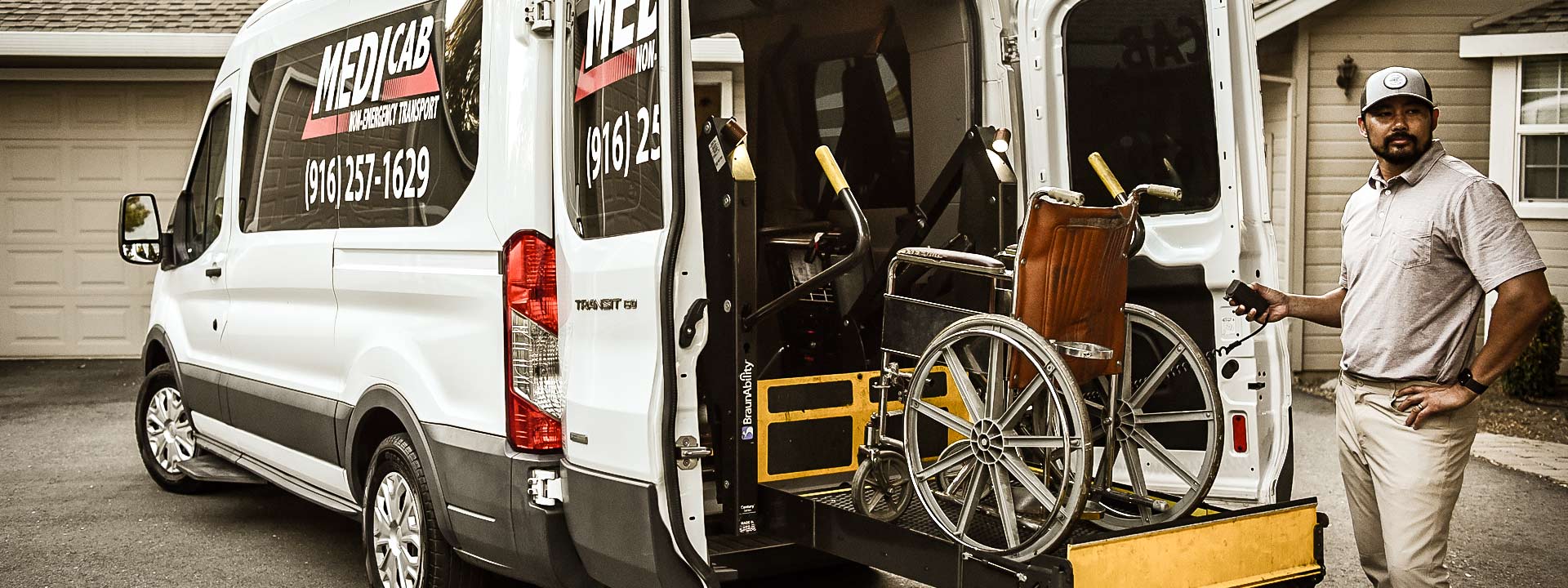Discover Convenient Medical Transportation Services Near Me for Reliable Treatment
Discover Convenient Medical Transportation Services Near Me for Reliable Treatment
Blog Article
Obtainable and Affordable Medical Transport Options for Seamless Health And Wellness Support
In the realm of medical care, the ease of access and price of medical transportation are critical in making certain people can access the treatment they require when they require it. The capacity to effortlessly browse transport alternatives can considerably impact a person's ability to get timely medical focus, follow-up treatment, and general well-being. From non-emergency medical transportation solutions to cutting-edge options like telehealth, the landscape of clinical transportation is advancing to meet the varied demands of people. Thinking about the significance of this element in medical care delivery, exploring the array of alternatives offered becomes important for addressing spaces in availability and cost.
Non-Emergency Medical Transportation Provider

These services are staffed by qualified specialists who prioritize patient convenience and safety during transit. Motorists are outfitted to manage individuals with varying clinical demands and ensure that all journeys are worry-free and smooth - Medical Transportation Services Near Me. Additionally, non-emergency medical transportation services often use specific cars that are wheelchair-accessible, making them suitable for a variety of individuals with different wheelchair demands
Volunteer Driver Programs
Volunteer vehicle driver programs contribute in providing transportation support for individuals looking for non-urgent treatment. These programs depend on the kindness of volunteers who contribute their time and vehicles to aid transport clients to and from clinical consultations. By using volunteer motorists, organizations can supply a cost-effective solution for individuals who may not have accessibility to dependable transport.
Among the essential advantages of volunteer driver programs is the individualized treatment and interest that patients get. Unlike standard transportation solutions, volunteer chauffeurs often develop a relationship with the individuals they help, developing a helpful and caring setting during what can be a stressful time. In addition, volunteer driver programs can help link the space for individuals living in country or underserved locations where public transport choices may be restricted.
Mass Transit Options

Among the key advantages of public transport is its extensive schedule in city and rural areas alike. This considerable network enables patients from varied histories to take this link a trip to medical visits with family member ease. Additionally, public transport systems are usually geared up to fit people with specials needs, offering accessible traveling choices for those with flexibility obstacles.

Ride-Sharing and Transportation Network Companies
The advancement of modern transport alternatives for clinical objectives prolongs beyond traditional public systems like buses and trains to incorporate the ingenious world of ride-sharing and transport network firms. Ride-sharing services such as Uber and Lyft have changed the method individuals take a trip to clinical visits, supplying ease and flexibility to clients who may not have accessibility to their cars or traditional public transport. These systems enable users to ask for an adventure with the touch of a switch on their mobile phones, supplying door-to-door solution that can be particularly valuable for individuals with mobility obstacles or those needing assistance.
Transport network companies (TNCs) have likewise played a substantial duty in connecting the space in clinical transport solutions. Firms like Veyo and RoundTrip focus on non-emergency medical transportation, dealing with people that require a greater level useful throughout their trips to clinical facilities. By partnering with doctor and insurance firms, TNCs guarantee that individuals can access trusted and timely transport options, eventually adding to boosted health outcomes and person satisfaction.
Telehealth and Virtual Appointments
Enhancing healthcare ease of access and convenience, telehealth and online consultations have actually emerged as essential parts in visit the website modern-day clinical practices, reinventing the means people connect with doctor. Telehealth leverages modern technology to assist in remote communication between clients and healthcare professionals, using a wide array of solutions such as online appointments, remote tracking, and digital prescriptions. Online assessments allow people to seek clinical advice, medical diagnosis, and treatment from the convenience of their homes, removing the demand for physical check outs to healthcare facilities. This strategy not just saves time and lowers transport expenses for people yet additionally boosts the overall effectiveness of healthcare distribution.
Additionally, telehealth plays a vital function in prolonging clinical services to underserved areas, backwoods, and people with restricted mobility. By damaging down geographical barriers and increasing healthcare outreach, telehealth promotes very early treatment, connection of care, and client interaction. As technology proceeds to development, telehealth is poised to play a progressively substantial duty fit the future of health care distribution, fostering better health outcomes and client complete satisfaction.
Conclusion

From non-emergency clinical transportation solutions to cutting-edge services like telehealth, the landscape of medical transport is progressing to meet the varied demands of people.Non-Emergency Medical Transport Provider facilitate the prompt and safe transportation of people requiring non-urgent clinical care to and from health care centers.The evolution of modern transportation options for medical purposes expands past traditional public systems like trains and buses to incorporate the innovative realm of ride-sharing and transportation network companies.Transport network firms (TNCs) have actually additionally played a substantial role in bridging the gap in clinical transport services. Non-Emergency Medical Transport Providers, Volunteer Chauffeur Programs, Public Transport Options, Ride-Sharing and Transport Network Business, and Telehealth and Virtual Consultations all play a vital role in resolving transportation obstacles to healthcare accessibility.
Report this page